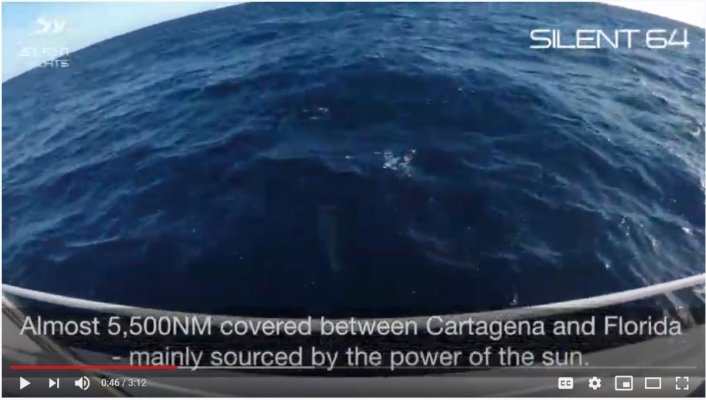I did find a YouTube video of the 64' version of the boat doing a hopscotch crossing of the Atlantic.
I'm at a loss for why a Hybrid crossing has any significance. It's basically a diesel electric boat with energy storage that can be supplemented with solar. From the captain's description, it's pretty obvious that the crossing wasn't possible without fossil fuel providing a significant amount of the energy.
If the objective is to reduce the consumption of fossil fuel, a sailboat is clearly a better choice.
This reminds me of Toyota's first years with the Prius. It's a Hybrid! The problem was it had worse fuel economy than their equivalent non Hybrid car. I'm guessing the same would be true here if you didn't have the solar to offset some of the electrical conversion loss.
Ted

